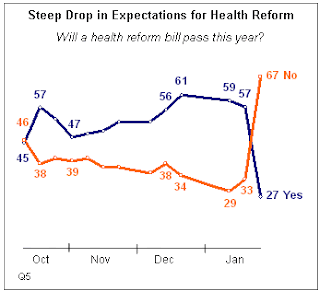Introduction by LCOA on its consensus recommendations:
The Older Americans Act (OAA) is the major federal discretionary funding source for home and
community-based services for older adults. Programs supported through the OAA include home-delivered and congregate nutrition services, in-home supportive services, transportation,
caregiver support, community service employment, the long-term care ombudsman program,
services to prevent the abuse, neglect, and exploitation of older persons, and other supportive
services. These programs provide vital support for those older adults who are at significant risk
of losing their ability to remain in their own homes and communities, or who need support and
protection in long-term care facilities.
In addition, OAA funds resource centers that support the work of the aging services network,
these resource centers address a variety of needs, including access to benefits, elder justice,
multigenerational service and volunteering, legal services, financial literacy, long-term care
ombudsman training, and targeted services to minority and special populations in need.
To develop and implement the wide array of OAA services, a system of federal, state and local
agencies and organizations, known as the Aging Network, was established. The core of the
Aging Network is the U.S. Administration on Aging (AoA), 56 State and Territorial Agencies on
Aging (SUAs), 629 Area Agencies on Aging (AAAs), 246 Title VI Native American and Native
Hawaiian aging programs, and more than 30,000 community-based service provider
organizations. This critical aging infrastructure is the backbone of our nation’s home and
community-based long-term services and supports system offering assistance to older adults. The Aging Network’s activities also benefit other populations such as people with disabilities and
caregivers.
Supported by the OAA, the Aging Network has successfully served millions of older adults in
the community and in long-term care facilities since 1965, and is positioned to assist the
country’s growing aging population to remain healthy, active, and in their communities. With
each reauthorization, the OAA has been adapted to meet the changing needs of this growing
population, the changing role of family supports, and expanding research and technological
advances, often with inadequate funding. Further, the Aging Network and its services have the
potential to save the Medicare, Medicaid, and Veterans Administration programs billions of
dollars each year by enabling older adults to stay in their homes and communities and out of
hospitals and long-term care facilities.
This current reauthorization provides an opportunity to reassess the successes and shortcomings
of the OAA’s ability to serve older Americans, particularly those with the greatest social and
economic need. In these times of fiscal restraint, the Leadership Council of Aging Organizations
(LCAO) offers in this document recommendations for improving the efficiency and effectiveness of the OAA in its delivery of core services and how it interacts and coordinates with other federal programs that serve older adults.
In order to maximize effectiveness, community-based services provided through the Aging
Network must be coordinated and integrated with the various federal health care services that
older adults receive. In addition, they must work hand in glove with other programs at the state
and federal levels such as the Low-Income Energy Assistance Program (LIHEAP), fraud
prevention programs, Senior Corps and other programs promoting community service,
transportation programs, the State Health Insurance Assistance Program (SHIP), the Adult
Protective Services Program and other elder abuse-related programs.
The goal of the following LCAO recommendations is to authorize the AoA, the Assistant
Secretary, and the programs and staff across the nation to fulfill their promise by giving them the
tools, direction and flexibility to provide the services that the aging population of our nation
demands. Our focus is on person and family-centered care with local flexibility to serve the
needs of unique communities and sub-populations. LCAO’s recommended improvements do not
require major changes to the OAA’s core services or eligibility requirements. LCAO strongly
believes that increasing the authorized funding for all titles of the OAA is necessary; however,
provision of adequate funding is just one of the ways that we propose to improve and expand services. Additionally, any new programs added to OAA should be given specific authorization
levels.
With the population of older individuals expected to grow exponentially in the coming years, the
aging network faces incredible challenges associated with the influx of older individuals into OAA programs. The LCAO, which has played a significant leadership role in past reauthorizations, is committed to a reauthorization that will strengthen the OAA for both the older adults currently receiving services and for the boomers who, in 2011, have begun turning 65 years of age.
We urge Congress to update and improve the Older Americans Act, while providing the funding
needed for OAA programs to keep older Americans independent and productive, thereby saving
federal and state government resources. Therefore, the LCAO makes the following
recommendations to strengthen and enhance the OAA.
Full Document









![Reblog this post [with Zemanta]](http://img.zemanta.com/reblog_b.png?x-id=f386363b-a350-44fb-a699-0740b75c42c7)

![Reblog this post [with Zemanta]](http://img.zemanta.com/reblog_b.png?x-id=939d7ae0-8cd7-4c3e-8c79-c038145ce155)

![Reblog this post [with Zemanta]](http://img.zemanta.com/reblog_b.png?x-id=3fc0fbdd-90a2-496b-888a-1d91a0f1db19)

![Reblog this post [with Zemanta]](http://img.zemanta.com/reblog_b.png?x-id=38e373a2-6105-4aa3-bffc-3e4d48cb18d5)

![Reblog this post [with Zemanta]](http://img.zemanta.com/reblog_b.png?x-id=588ab33a-3c91-4769-bfaa-39e858e8015d)

![Reblog this post [with Zemanta]](http://img.zemanta.com/reblog_b.png?x-id=80eac0f4-3292-4885-99fd-3d9599598b8a)

![Reblog this post [with Zemanta]](http://img.zemanta.com/reblog_b.png?x-id=a762c823-df89-43f6-a28d-a68c82767b09)

![Reblog this post [with Zemanta]](http://img.zemanta.com/reblog_b.png?x-id=ab5f514a-e8da-4dbc-b155-209493468784)